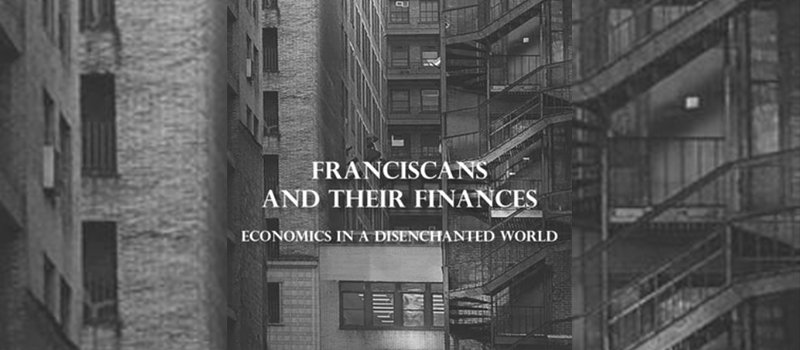Spirit of Ministry: The Economy of Francesco and ‘good humans’ among us

David B. Couturier, OFM. Cap., “Franciscans and their Finances: Economics in a Disenchanted World” (St. Bonaventure: Franciscan Institute Publications, 2015).
Available for purchase at franciscanpublications.com.
Pope Francis is calling us to a new relationship with our finances; one that is more than just dollars and cents. He is inviting us to join a movement — the Economy of Francesco — that challenges us to use our resources to build a more sustainable, equitable and inclusive world for all of creation.
Rochelle Nicks, an affiliate with FSPA and director of mission advancement, wholeheartedly embraces this challenge. Her personal and professional investment in Franciscan values and fraternal economy drive her to truly be “a good human” among us every day. Committed to learning more about Franciscan economics and how to apply its principles in daily life, Rochelle picked up the book “Franciscans and Their Finances: Economics in a Disenchanted World” by Father David B. Couturier, a friar of the Capuchin Province of St. Mary.
Father David is a teacher and scholar of Franciscan studies, theology, clinical and pastoral psychology, socio-analysis and organizational development as well as the author of “The Fraternal Economy: A Pastoral Psychology of Franciscan Economics.” Through his extensive experience and insight, he offers tools for investing in an economy built on providence, relationships and care for all creation, not exclusively of currency.
Rochelle shares these key takeaways from the book — Franciscan economic principles that can inspire the “good human” in all of us.
1. When working through personal and communal economic decisions, use these five principles:
- Transparency: There is mutuality in all things. All goods, economic activities and ministerial decisions are at the service of the whole. There are no hidden schemes by leadership or membership.
- Equity: All individuals and communities get what they need and contribute what they have for the common good and the building up of communion. Service replaces entitlement.
- Participation: Build mechanisms of cooperation and communion of persons without domination or deprivation.
- Solidarity: Those who have more give more to those deprived. Everyone works to undo structures of sin that serve as obstacles to communion.
- Austerity: Spend the minimum necessary, not the maximum allowed. Live and work simply, so that others can simply live and work.
2. Talk with others about your economic situation. You are not alone.
- Learn and Reflect: What larger economic forces are shaping your lives? Why are we economically insecure? What can we do together to develop a more secure foundation for our economic lives in the future?
- Provide mutual aid and local action: How can you get out of debt? How can you downscale your consumption and live a more ecologically friendly existence? Help each other create concrete alternatives.
- Decide whether to engage in further social action: Lobby members of the United States Congress for health care reform. Press congress for livable wages. Pray together.
3. Rethink work.
- Commit to the dignity of the human person. A human person should not be reduced to what she can produce and consume in the marketplace.
- Recognize an inherent right to work. Humans are the bottom line of economics, not profit.
- Believe in the abundance and generosity of God, not the theology of scarcity.
- Observe the intimate connection between labor, community, ecology and peace.
- Practice an ethic of work that supports families, connects neighbors and builds a civilization of love.
4. Challenge consumerism.
- Examine your own desires and what has happened to your yearning for the infinity of God. How often have you allowed that desire to be replaced with the primacy of goods?
- Learn where your products originate from and watch for slave and trafficked labor. Focus on the social and cultural primacy of every human’s dignity and rights.
-
Work to expose supply chains that support human trafficking and dismantle the mechanisms that promote human trafficking.
5. Unclutter your soul.
- Develop a new attitude of respect toward nature and things of the earth.
- Reprioritize your goals and perspectives.
- Shift from busyness to happiness by way of focusing on creative blessedness.
- Divest yourself of all that obscures your clear view and ready access to God, yourself, your world and everything in it.
Rochelle Nicks serves as FSPA’s director of mission advancement and entered the affiliation community in 2021. She is deeply rooted and wholeheartedly invested in community as both a spiritual collaborator with FSPA and an avid volunteer for La Crosse Kiwanis Club and Emerson Elementary School. Rochelle, her husband and two sons reside in La Crosse, Wisconsin.
